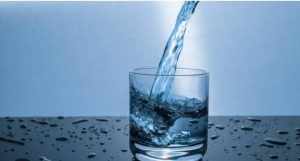By Jubril Mutalib

Polydipsia is a medical term that refers to excessive thirst. While occasional thirst is normal, persistent and constant thirst,even after drinking a lot of fluids, polydipsia
could indicate an underlying health condition such as diabetes.
What is Polydipsia ?
Polydipsia is a medical term that describes the abnormal urge to drink fluids excessively.
It is characterized by a constant and persistent feeling of thirst, often accompanied by symptoms such as frequent urination and dry mouth (Xerostomia).
Maintaining proper hydration is vital for the body to function effectively.
Everyone gets thirsty from time to time. But with polydipsia, your thirst may last for days,weeks,or months, regardless of how much you drink, you can never seem to quench your thirst.
If you are experiencing unrelenting thirst or if excessive thirst persists even after drinking, that could be an indication of an underlying condition.
What are the Causes of Excessive Thirst?
The body requires an adequate amount of water for proper functioning, and feeling thirsty can be resolved by drinking more water.Thirst is typically a response to fluid loss caused by various factors such as consuming spicy or salty foods,intense exercise leading to sweating; intake of caffeine, intake of alcohol, illness accompanied by symptoms like fever, diarrhea and vomiting, pregnancy,or certain medications.
However, excessive thirst can also be a potential indicator of underlying health conditions, including diabetes mellitus,high blood sugar levels can cause polydipsia,which is one of the primary signs of diabetes.
If you are experiencing excessive thirst and frequent urination but do not have diabetes mellitus,it might be indicative of other conditions such as:
Dehydration
prolonged inadequate water intake can lead to dehydration causing increased thirst.
Low Blood Potassium
Insufficient potassium levels in the blood can contribute to excessive thirst.
Diabetes Insipidus
This unrelated condition affects the kidneys,glands,and hormones involved in fluid regulation, leading to production of large amounts of urine.
Psychogenic Polydipsia
Certain psychiatric and mental health disorders, like anxiety and schizophrenia,can cause compulsive water drinking.
Loss of Bodily Fluids from the Bloodstream into Tissues
Medical conditions like buns, kidney failure, liver failure can result in the movement of fluids from the bloodstream into the tissues.
Hormonal Disorders
conditions affecting hormone regulation,such as adrenal gland disorders can lead to increased thirst.
How can Polydipsia be Treated ?
Polydipsia can be treated by addressing and controlling the underlying causes.
Some guidelines to help prevent polydipsia are:
Hydration
Adequate hydration is crucial to prevent dehydration and associated excessive thirst.
Drink water throughout the day and maintain a balanced intake of fluids especially during hot seasons.
Manage Stress and Mental Health
If polydipsia is related to psychogenic causes such as anxiety or psychiatric disorders,it is important to manage these conditions by seeking support from mental health professionals.
Regular Check-ups
Maintain regular medical check-ups to monitor your overall health and detect any changes or underlying conditions that many contribute to polydipsia.
Diabetes Management
If you have diabetes mellitus,it is important to follow your health care provider’s recommendations for managing your blood sugar levels. This may include taking medications as prescribed , following a balanced diet , engaging in regular physical activity and monitoring your blood sugar levels regularly.
It’s normal to be thirsty sometimes .It is a normal bodily response to the need for hydration.
However, if you find yourself constantly and excessively thirsty,even after drinking enough fluids,it may be a sign of an underlying health condition.
Seek medical advice to identify the cause of your polydipsia.
